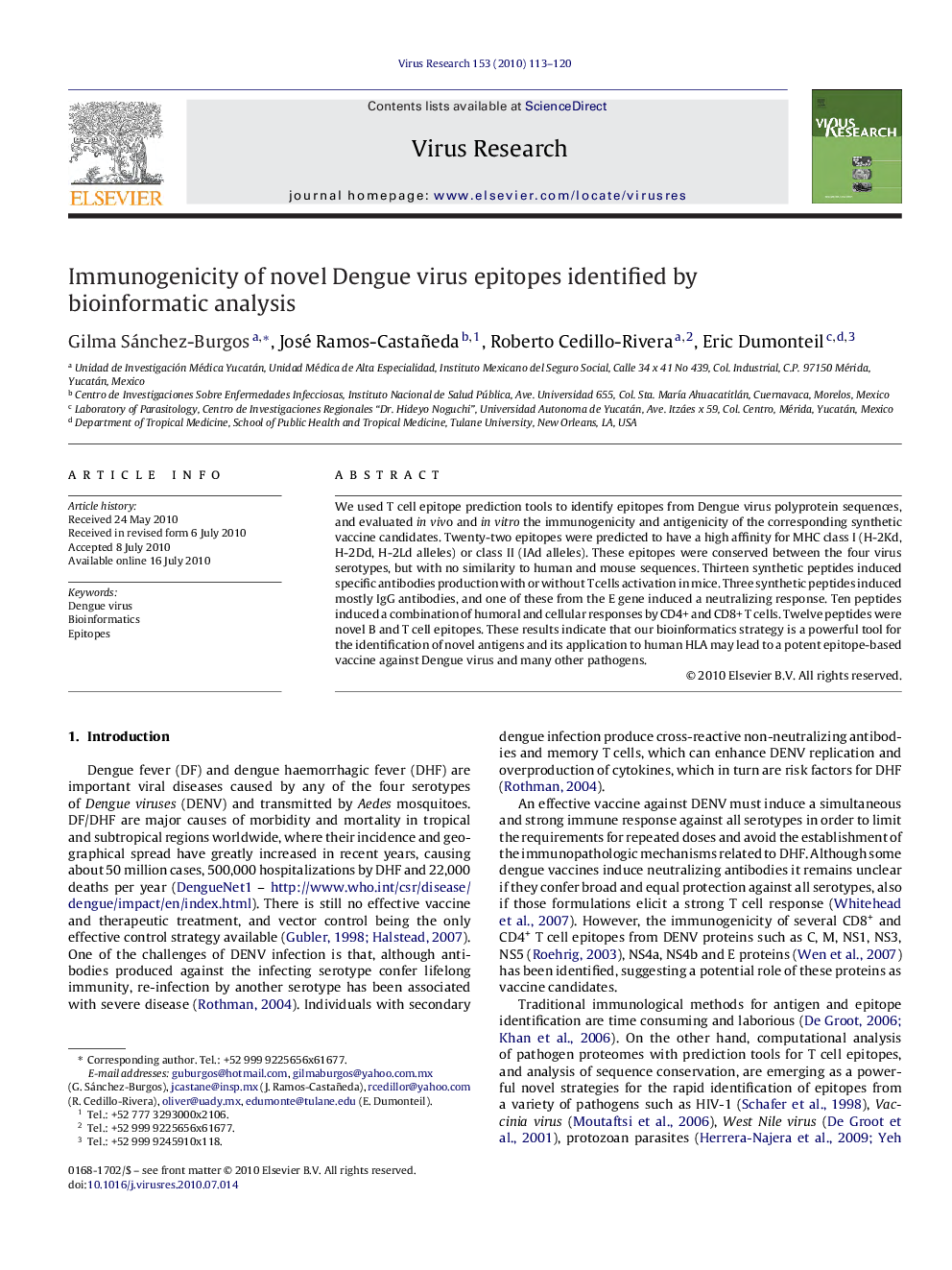| Article ID | Journal | Published Year | Pages | File Type |
|---|---|---|---|---|
| 3429337 | Virus Research | 2010 | 8 Pages |
We used T cell epitope prediction tools to identify epitopes from Dengue virus polyprotein sequences, and evaluated in vivo and in vitro the immunogenicity and antigenicity of the corresponding synthetic vaccine candidates. Twenty-two epitopes were predicted to have a high affinity for MHC class I (H-2Kd, H-2Dd, H-2Ld alleles) or class II (IAd alleles). These epitopes were conserved between the four virus serotypes, but with no similarity to human and mouse sequences. Thirteen synthetic peptides induced specific antibodies production with or without T cells activation in mice. Three synthetic peptides induced mostly IgG antibodies, and one of these from the E gene induced a neutralizing response. Ten peptides induced a combination of humoral and cellular responses by CD4+ and CD8+ T cells. Twelve peptides were novel B and T cell epitopes. These results indicate that our bioinformatics strategy is a powerful tool for the identification of novel antigens and its application to human HLA may lead to a potent epitope-based vaccine against Dengue virus and many other pathogens.
